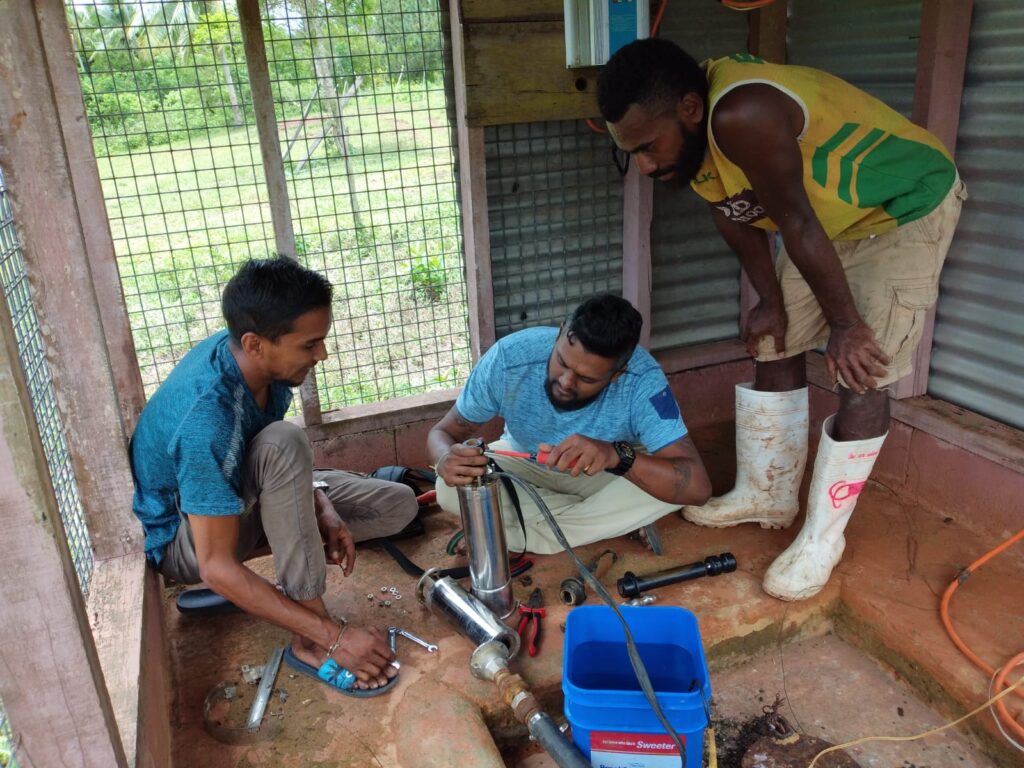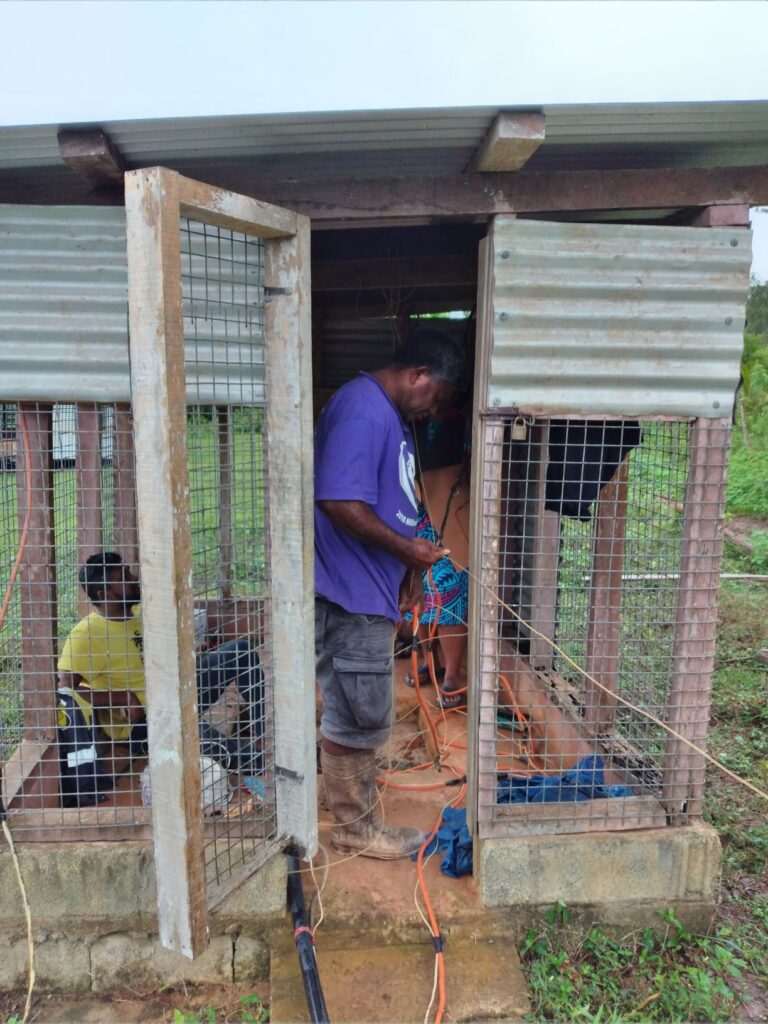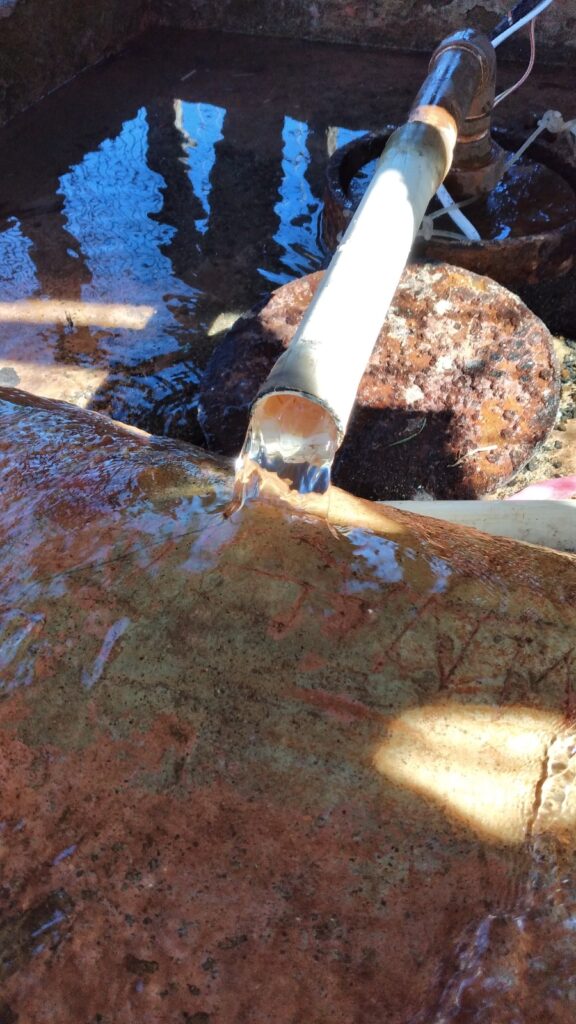Village water supply restored after borehole rehabilitation
The repairing of a borehole in Tavulomo Village in the district of Dama in Bua Province has brought water to more than 180 people. In April 2020, the solar pump was damaged and stopped delivering water from the borehole to the 37 households in Tavulomo Village. Since then, the villages relied on the limited and restricted water supply from the neighbouring village in the district.
In November, the villagers with support from the Watershed Interventions for Systems Health in Fiji (WISH Fiji) project, Fiji’s Mineral Resources Department, the Bua Provincial Administrator’s Office, Bua Provincial Council Office and village-level Water and Sanitation Committee, repaired their broken solar pump and restored their primary source of water.

The village headman (Turaga ni Koro), Kelemedi Bitu said during this period, the village experienced inadequate supply of water which affected them daily.
“Without sufficient water, our lives were very hard,” Mr Beti said. He described the problems that the broken borehole pump had on the whole community. Prior to receiving the water supply from Nasau Village, the villagers depended on rain and river water for drinking and other household activities.
“With consent from Nasau Village, we connected a pipe from their water source to our Rota tanks that served the individual households. However, the village had to wait for certain periods during the day to access water and even experience disruptions due to debris clogging the pipe that supplied water from Nasau,” Mr Beti explained.

Additionally, “during the dry periods, both villages experienced low water supply due to the increase in the number of people using the single water source and we had to resort to using river water too.”
Mr Beti said the villagers were grateful to WISH Fiji for the timely assistance, especially as the Christmas and holiday period approaches.
Wildlife Conservation Society WISH Fiji Project Manager, Dr. Andrew Tukana said the rehabilitation effort was part of the project to work with local communities and relevant government authorities to implement ecological, water and waste management interventions identified by village water committees to reduce the incidences of waterborne diseases such as leptospirosis, dengue and typhoid.
“The work reflects on the project’s objectives which was to ensure a safe and reliable supply of water for the village, which in turn was expected to improve health and livelihoods for the people. The intervention was critical for the village because the people needed easily accessible and sufficient water to continue with their daily lives and ensure good health,” Dr. Tukana explained.

Dr Tukana added the expert staff from the Mineral Resource Department cleaned the borehole by flushing out the sediment, stagnant water and debris before repairing the pump.
The WISH Fiji project which is funded by Bloomberg Philanthropies’ Vibrant Oceans Initiative and the Australian Department of Foreign Affairs and Trade, aims to achieve reduction in the incidence of water-borne diseases − typhoid, dengue, leptospirosis − by developing and testing real-time mobile tools to optimise water, sanitation and catchment management and training cross-sectoral teams to improve outbreak response.

